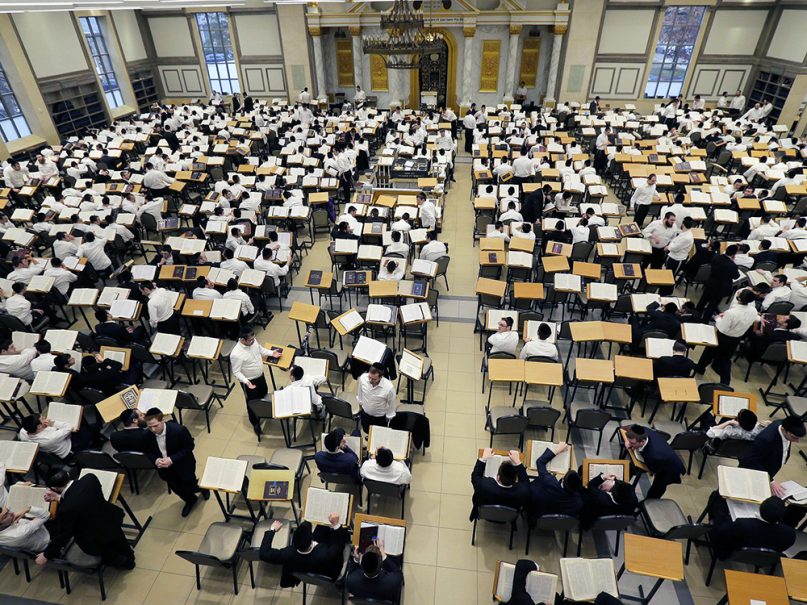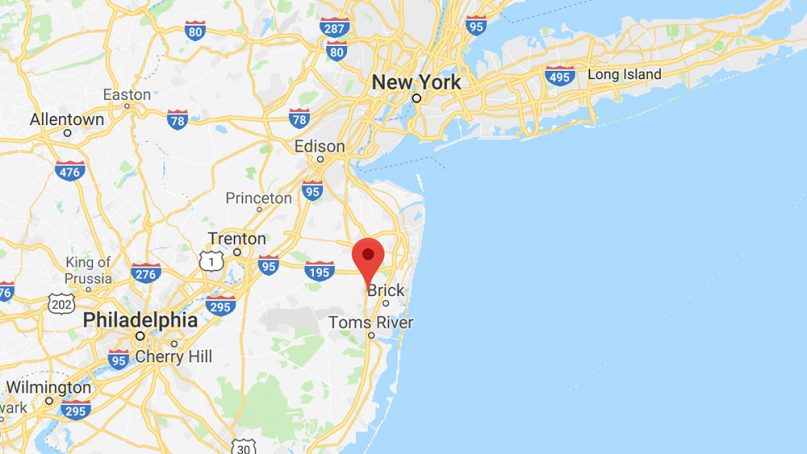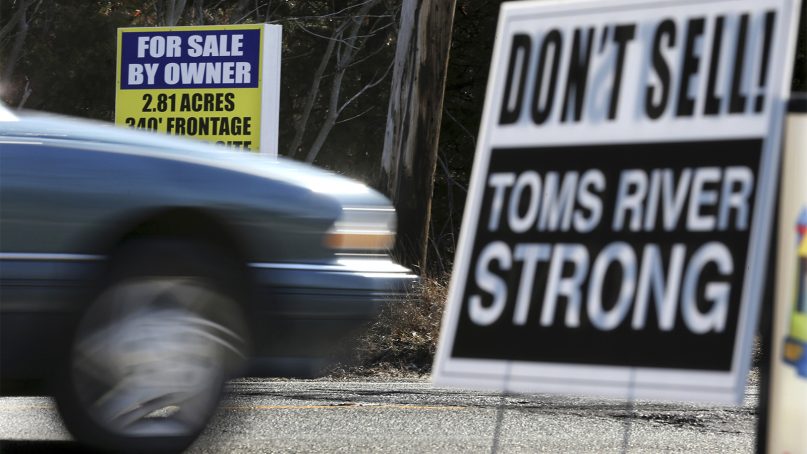(RNS) — Ocean County, N.J., home to barely half a million people sprinkled along the Jersey Shore, is not the kind of place that normally pops up in celebrity tweets. But on Jan. 22, comedian Sarah Silverman jumped into a controversy raging in the suburban townships like Jackson, Lakewood and Toms River, retweeting a post from Tablet magazine about a video aimed at warning locals about Jews moving from New York to their comparatively affordable county.
A group with anonymous backers called Rise Up Ocean County circulated the video, which came to light last week in reporting by the Jewish Telegraphic Agency. Calling Orthodox Jews “purported villains … looking to move to the Central New Jersey suburbs,” it also juxtaposes depictions of ultra-Orthodox Jews with a paraphrase of a famous poem about the Holocaust: “First they came for my house, but I did not speak up,” a voice intones. “Then they came for my forests, but I did not speak up, because I thought I had no vested interests in the forests.”
“Anybody who would objectively watch the videos that are being put up would understand clearly why there would be a significant perception of anti-Semitism,” Michael Cohen, Eastern director at the Simon Wiesenthal Center, a Jewish human rights organization, told Religion News Service. “There are obviously here some individuals who have nefarious and anti-Semitic intentions and whose goal it is to incite the larger surrounding population, and that is truly worrisome.”
The question of what constitutes anti-Semitism is very much at the root of the ongoing story of Jewish families resettling in Ocean County. Since the turn of the century, Lakewood, about 90 minutes to either Philadelphia or Manhattan, has seen a population explosion, increased from 60,000 to 100,000 residents between 2000 and 2017. It is predicted to double again by 2030, according to the Asbury Park Press.
The economy in and around Lakewood is growing exponentially as a result of the population boom.
“Lakewood has several large industrial areas that are growing like crazy and employing many more people from the surrounding counties, not just Jews,” said one Jewish resident, a mother of five who moved to Lakewood a decade ago and who wished to remain anonymous.

Yeshiva students at Beth Medrash Govoha in Lakewood, N.J. BMG has an enrollment of almost 7,000 students. Photo by Tanya Breen/Asbury Park Press via USA Today
But Lakewood, home to the largest yeshiva in the country, Beth Medrash Govoha, has attracted Orthodox Jews in large numbers, and as Lakewood has filled up, Orthodox families have fanned out to nearby towns Toms River and Jackson, JTA has reported. And that’s where tensions have arisen.
Thomas Kelaher, mayor of Toms River, told The New York Times in 2017 that many of his constituents felt threatened by Jews aggressively ringing their doorbells trying to buy their homes. “This has nothing to do with anti-Semitism,” he said. “This is strictly based on the type of behavior. We welcome people to move in legitimately.” (Kelaher didn’t immediately respond to an RNS query.)
The Toms River township’s homepage includes prominent links, offset by stars, to “Issued Real Estate Canvassing Permits,” “No Knock Form,” “Cease and Desist Ordinance,” and “Cease and Desist Report.”
“If you want to sell, great. If you don’t want to sell, everyone is happy to be neighbors and be civil,” she told RNS. “Most people get a knock, and they’re excited about it. If you’re not excited about it, go on the ‘Do not knock’ list. I don’t look at that as someone forcing you out of the neighborhood.”
Goodman works “99.9 percent,” she said, through referrals but knows of some agents who go knocking on doors trying to find sellers. Provided they do so with the proper licenses and permits, she doesn’t see that as harassment. In fact, she sees the tone of the opposition to Jewish realtors’ door knocking as anti-Semitic.
“You never hear that about the cable guy or the guy who is doing the solar [power],” she said. “You don’t hear it about the non-Jewish realtors. You only hear it about the Jewish realtors.”

Lakewood is located near the northern coast of New Jersey. Image courteys of Google Maps
Goodman said that the Orthodox Jewish communities in the county are very family-oriented, open-minded, and tolerant of other cultures. “We like when everyone gets along and everyone is very respectful of other religions, and we want the same back,” she said. “I think it’s more the fear of the unknown than anything else that the residents of Toms River and Jackson feel.”
The Jewish mother of five in Lakewood said the tensions are overblown.
“I live in an all-Jewish neighborhood. However, any interactions with non-Jews that I have are always respectful and pleasant,” she said. She’s heard that things are similarly cordial in Jackson and Toms River.
“No one seems to have problems with their non-Jewish neighbors or vice versa,” she said. “I hear stories all the time about Jewish neighbors giving candy to their non-Jewish neighbors on Halloween.”
On Purim, which celebrates the saving of Persian Jews detailed in the Book of Esther with a kind of cousin to trick-or-treating, the non-Jewish neighbors return the favor, she said.





